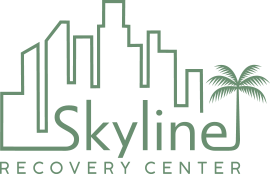Woke up after doing something embarrassing, only to realize you can’t remember half of what happened the night before?
Maybe you were out with friends, had a few drinks, and suddenly the details of your evening are gone. That feeling, where your memory is hazy or completely blank, is more common than you’d think, and it’s known as alcohol amnesia.
High doses of alcohol can lead to blackouts involving amnesia, where your brain just doesn’t store memories properly while you’re intoxicated.
You might be fully engaged in the moment, but when the alcohol wears off, you’re left with gaps, leaving you to wonder what exactly happened. This isn’t just a typical hangover. It’s a disruption in how your brain processes and retains memories.
Understanding alcohol amnesia can help you make better choices and enjoy your social life without the fear of losing crucial moments.
What is Alcohol Amnesia?
Alcohol amnesia is a type of memory loss that occurs as a result of alcohol consumption. It happens when alcohol disrupts the brain’s ability to form or retain memories, leaving gaps in recollection, especially from periods of heavy drinking.
Types of memory loss associated with amnesia from alcohol:
Blackouts
These are complete memory losses where the individual is unable to recall events or experiences that occurred while intoxicated, even when sober. The person may engage in normal activities, but when they try to recall the details later, the memory is completely blank.
Brownouts
Unlike blackouts, brownouts are partial memory losses where some events are forgotten, but others remain. The individual might have fragmented or hazy memories of the night, which they can partially recall but may not be able to piece together in full.
How Does Alcohol Affect Memory?
Alcohol doesn’t just affect your coordination or speech, but also your brain’s ability to process and store memories. When consumed in larger quantities, it interferes with the way your brain’s hippocampus functions. This part of your brain is crucial for creating and storing new memories.
Alcohol slows down brain activity, which impacts the neurotransmitters responsible for memory formation, particularly glutamate and GABA.
When alcohol blocks glutamate, it inhibits the brain’s ability to form new long-term memories. High doses of alcohol can lead to blackouts involving amnesia.
A study by the National Institute on Alcohol Abuse and Alcoholism (NIAAA) shows that excessive drinking can lead to memory gaps because alcohol impairs the hippocampus’ ability to consolidate memories, making it harder for your brain to create lasting memories.
What Causes Amnesia From Alcohol?
Both blackouts and brownouts are forms of alcohol induced amnesia, but they differ in the severity and nature of the memory gaps.
Let’s take a look at the causes behind each:
What Causes Blackouts?
- High Blood Alcohol Concentration (BAC): When blood alcohol levels rise too quickly, the brain can’t process and store memories properly, leading to a complete inability to recall events.
- Disruption of Glutamate: When glutamate activity is suppressed, the brain’s memory center cannot transfer information from short-term to long-term memory.
- Rapid Drinking: Binge drinking significantly increases the likelihood of blackouts. Because it doesn’t allow the brain time to process the alcohol, resulting in memory gaps.
What Causes Brownouts?
- Moderate Drinking with High BAC: The brain is impaired enough to cause partial memory loss, but the person may still recall certain moments from the evening.
- Impairment of Short-Term Memory: While the hippocampus is still affected, some information is retained in short-term memory but is not properly stored in long-term memory, leading to gaps in memory.
- Psychological Factors: Stress, anxiety, or mental exhaustion during drinking can contribute to brownouts. In these cases, the brain may be less able to retain memory, even with lower levels of intoxication.
How to Prevent Alcohol Amnesia?
- Drink in moderation to avoid excessive alcohol consumption that leads to memory loss.
- Pace yourself, allowing your body time to process alcohol. Avoid binge drinking, as consuming large amounts quickly increases the risk of blackouts and brownouts.
- Stay hydrated even between alcoholic beverages. Dehydration can worsen hangovers and increase the likelihood of memory loss.
- Eat before and while drinking to help slow alcohol absorption and keep your blood sugar levels stable, reducing the risk of physical discomfort.
- Avoid mixing alcohol types throughout the night. Mixing different kinds of alcohol can increase the chances of overconsumption and memory loss.
- Know your limits and be mindful of how much alcohol you can handle. Regularly pushing your limits can lead to other long-term health issues.
- Get enough sleep to help your brain recover and consolidate your memory.
- Consider taking breaks from drinking to give your body time to reset and recover.
- Consider seeking professional help if you experience frequent blackouts or brownouts. It may be a sign of a deeper issue with alcohol.
When Should You Seek Help?
If you’ve noticed a pattern of memory loss or frequent hangovers after drinking, it may be time to assess your relationship with alcohol.
Here are some signs that it’s time to seek professional help:
- Frequent Blackouts or Brownouts: Repeated blackouts or brownouts can indicate that alcohol is seriously affecting your brain’s ability to form and store memories.
- Drinking Beyond Your Control: If you often drink more than you intended or find it difficult to stop once you start, this could be a sign of alcohol dependence or abuse.
- Impact on Daily Life: When alcohol starts to interfere with your responsibilities, whether at work, school, or home, it’s a clear indication that drinking is affecting your life more than it should.
- Emotional and Mental Health Struggles: If alcohol consumption is causing anxiety, depression, or other emotional issues, it’s crucial to seek help.
- Physical Symptoms: Ongoing issues like fatigue, headaches, or digestive problems can also signal that alcohol is negatively impacting your body.
- Difficulty Managing Relationships: If it is causing tension in your relationships, whether with family, friends, or colleagues, it’s time to consider seeking support.
- Trying to Quit but Struggling: If you’ve tried to cut back or quit drinking and found it difficult, professional guidance can help you understand why and provide strategies for healthier drinking habits.
- History of Alcohol Use Disorder: If you have a history of alcohol use disorder (AUD) or a family history of addiction, it’s important to be proactive about seeking support before the problem worsens.
Struggling with Memory Gaps After Drinking?
If you’re finding yourself waking up with more questions than answers, it could be a sign that alcohol is affecting more than just your body. High doses of alcohol can lead to memory loss and blackouts, and when this happens repeatedly, it may signal a deeper issue with alcohol abuse.
At Skyline Recovery Center, we specialize in helping individuals recognize the signs of alcohol dependence and provide the support needed to regain control of their lives.
Reach out today and start taking control of your recovery with the right support. Your memories and your future are worth it.


